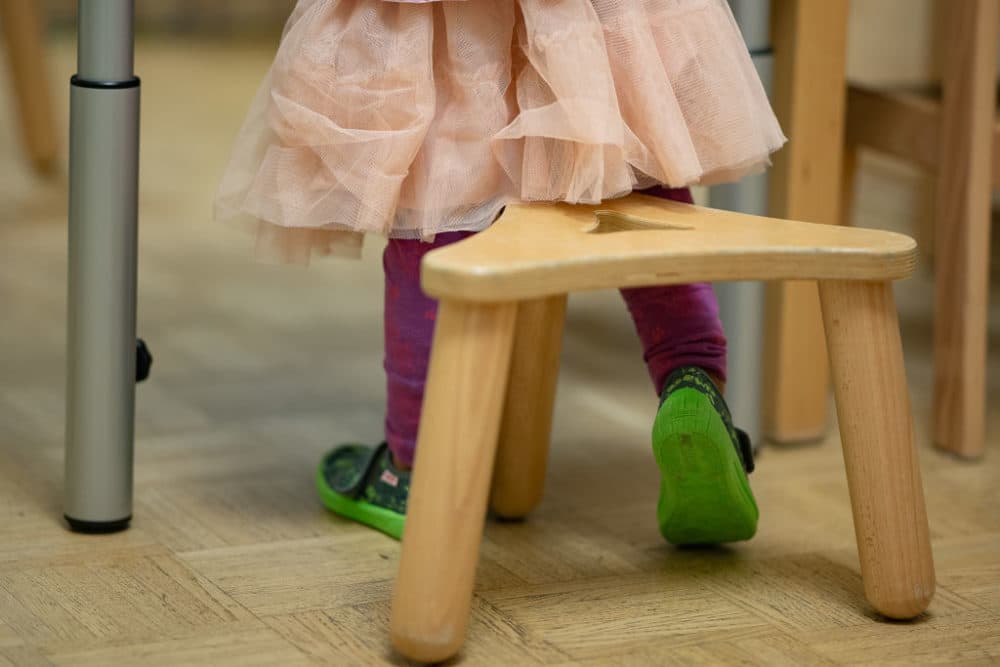Advertisement
Commentary
For parents of young children, vaccines offered a glimmer of hope. Now what?

“How are you doing?”
As a hospital pediatrician in New York City, it’s been almost two years since I’ve been able to respond to this greeting without pause. During the initial pandemic trauma, in the spring of 2020, I answered with a heartfelt “doing my best,” or an “OK today, thanks for asking.”
During the first pandemic summer, when things felt a little more normal, I offered a shrug, a sigh, a smile. By the time this holiday season rolled around, I was feeling pretty good. Not pre-pandemic, unhesitating “good,” but getting closer.
But, last month, when the latest Pfizer data indicated further vaccine delays for children under 5 — which includes my daughter — I was knocked flat.
The texts, calls and questions from parents came pouring in. Friends and family reached out: “Heard the news. Ugh. How are you?”
I finally had a straightforward answer: "I'm not OK."
Knowingly or not, many parents like me had hitched our hope for the future to having our little ones immunized. Hearing that our vaccine dream has been deferred is devastating. After these two long years of juggling work and childcare, while sifting through news about this deadly virus and the chaos it has wrought, felt like yet another reminder: No one is coming to save us.
As a hospital pediatrician, I’ve seen how omicron is hurting kids. I bristle at arguments that minimize the risk by focusing only on the harms of acute illness.
The omicron surge has been especially difficult on parents. This variant is so wildly contagious that exposure is nearly unavoidable. The U.S. is nearing 1 million infections per day, and as a result of the sheer scale of illness, many, many more kids are falling ill. Pediatric hospitalizations are still rare in the grand scheme of the pandemic, but they are still much higher now than at any other time during these past years. The sense of defeat and despair in my community of parents right now is palpable.
As a hospital pediatrician, I’ve seen how omicron is hurting kids. I bristle at arguments that minimize the risk by focusing only on the harms of acute illness. And I remain baffled by claims that pediatric COVID cases are insignificant since other diseases, like RSV, cause more hospitalizations. Comparisons like these completely miss the point. Why? Because COVID is a vaccine-preventable disease.
Pediatricians would be just as passionate about protecting children with an RSV vaccine if we had one. So, I can reassure parents that their children will persevere through their own resilience and our medical interventions, but I can't ignore the fact that this suffering is preventable, and thus inexcusable.
Advertisement
We could better protect our kids — and especially our youngest children — if only they were a priority. But pandemic fatigue has reached an unprecedented peak, and the appetite to make accommodations for those who can’t yet be vaccinated feels practically nonexistent. Sick kids are missing cancer treatments in overburdened hospital systems, while “vaxxed and done” adults attend concerts. Non-essential workers meet in person while quarantined teachers do their best to help students across the country get the most out of virtual learning. To say I’m frustrated is an understatement.
The promise of vaccines for our children had been the brightest glimmer of hope — and not only to protect them against the very worst of a COVID infection. Being able to get my 4-year-old daughter vaccinated is an essential step towards normalcy. She has no recollection of life before the pandemic; every milestone in her life is tinged with sadness, for how it could have been.
Being able to get my 4-year-old daughter vaccinated is an essential step towards normalcy.
With the vaccine, and the optimal protection it provides, comes a different future. An end to the stop-and-start cycle of closings and re-openings, to 10-day quarantines and constant disruptions to the routines that kids and families rely on. A chance to finally restore the world to our children.
Feeling the possibility of a life with less uncertainty and unease slip away is exquisitely painful.
As a pediatrician, I know how resilient kids are. I know they will soon have the vaccine protection they deserve, and that until then, health care workers will care for the physical and emotional challenges that confront them. But as the mom of a young child, I’m not OK. And it’s OK if you’re not either.
We have a chance to demand that our society do better for our children. You can sign a petition to the FDA to remove the red tape that is preventing safe and effective vaccines from our youngest children. We can use our voices and votes to support policies that place the health of children over the convenience of vocal adults.
